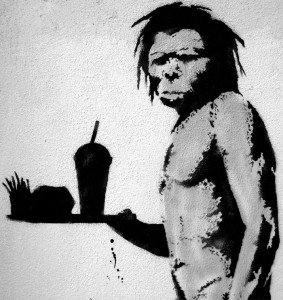 For years, dieting has been a multi-billion dollar industry. From celebrities to sponsored content on publications, reliable and accurate dietetic information is hard to come by. For what reason? The less a would-be dieter knows, the more likely they are to fail their diet. By the time the diet has failed, a new diet is created. This is the cycle of “fad dieting.”
For years, dieting has been a multi-billion dollar industry. From celebrities to sponsored content on publications, reliable and accurate dietetic information is hard to come by. For what reason? The less a would-be dieter knows, the more likely they are to fail their diet. By the time the diet has failed, a new diet is created. This is the cycle of “fad dieting.”
One of the most consistent fad diets is a the “juice cleanse.” Supposedly, by not eating—and instead drinking odd, often unscientific, illogical ingredients—you remove biological toxins and improve your health. Generally low calorie, the juice cleanse mania has taken turns from early wheat grass mixes to maple syrup and beyond, having thousands forego solid foods in hope of outstanding results.
The problem with the juice cleanse ideology is that the body is biologically equipped with the liver which is our only way of processing such toxins. “Toxin” exists as some existential term that readers aren’t expected to have the knowledge base to understand; it’s a marketing tool. It’s a diet buzzword that people hooked on “health” see to validate their addiction.
Other than cleanses, a few other notable diet trends have been on the shelves or plastered all over magazines and online. The most popular talk show “Dr. Phil” has managed to plug his book, “The 20/20 Diet,” into every applicable situation. The 20/20 diet breaks down into 20 foods over 20 days. Like most diets, the 20-20 diet emphasizes portion control, whereas the juice cleanse focuses on “toxins.”
The Paleo diet was all the rage these past few months. The Paleo diet consists of eating only foods that are believed to have been eaten by early humans. For those interested in the Paleo diet, approach with caution. Humans today are different from humans then, so basing your diet off earlier organisms may seem fine until you start trying chemosynthesis.
The Alkaline diet involves cutting out processed foods in efforts to curb pH levels. However, despite this diet being generally healthy and full of generally nutritious foods, there is little to no evidence that your acidity levels are connected to weight loss. This diet might be good if you live a basic lifestyle.
The cotton ball diet went around on Facebook for a while, and should probably never be practiced outside of the Internet. Simply soaking cotton balls in juices and eating them, the cotton ball diet seems to contain almost no nutrients. Cotton balls aren’t even food. They’re not even cotton most of the time, so most professionals are quick to dismiss this diet.
You may have noticed that these fad diets have quite a bit in common with one another in some way, shape or form. What should stand out is that all of them, barring maybe the contents of the 20/20 Diet book, don’t include exercise while promoting weight loss.
People, including people looking to lose weight, are not immune to the laws of thermodynamics. Weight loss occurs when calories out exceeds calories in. By restricting your diet and keeping the same level of activity or inactivity, a dieter is only tackling half the battle.
What you eat is important, but what you do is also a huge factor in your weight loss journey. By living on a low calorie diet, you can expect some weight loss. By having an increased amount of physical activity, dieters can improve their health by managing their weight and their physical condition as a whole.
Weight is one factor towards health, activity promotes health as a whole. An active lifestyle can aid dieting and turn dieting into weight loss and health gained. Dieting alone will not do much, and will yield less results which in turn discourage dieters, which in turn try again later with some other appealing diet. Don’t get caught in the cycle.
Is it worth wasting years of your life “trying to find the diet that works for you” or is it worth it to take a diet, incorporate it into a lifestyle change, and to improve your health?
You’ll waste more time, which results in more effort overall, messing with fad diets than consulting your doctor or dietician to seriously improve your health and wellbeing. A diet alone is just a combination of foods. Getting healthy is a process.
You are a person, and getting nutrients and burning calories is a process, not a pile of orange juice soaked cotton balls and your favorite talk show host.
Barton Kleen
Managing Editor

